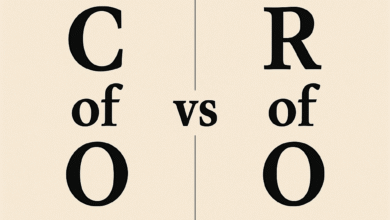What You Need to Know: 10 Key Differences and Similarities Between Realtors and Agents in Nigeria

In Nigeria’s growing real estate sector, two key players often come to mind: realtors and agents. While both are essential for the smooth functioning of property transactions, people often confuse their roles. Many assume that these terms are interchangeable, but they have distinct responsibilities and functions.
In this article, we’ll dive into the key similarities and differences between realtors and agents in Nigeria. Whether you’re a buyer, seller, or investor, this guide will help you understand who to work with for your property needs.
Who is a Realtor?
A realtor is a real estate professional who is officially recognized by professional bodies, both locally and internationally. In Nigeria, they are often members of the Nigerian Institution of Estate Surveyors and Valuers (NIESV). Some realtors also affiliate with the National Association of Realtors (NAR), an international body that sets ethical standards for real estate professionals.
Realtors are held to high standards of professionalism and follow strict codes of ethics. They typically offer more comprehensive services, such as property management, real estate consulting, and valuation.
Who is an Agent?
An agent in Nigeria is anyone acting as an intermediary between property buyers, sellers, landlords, or tenants. Unlike realtors, agents may not have formal training or certification. Many agents operate informally, relying on personal networks and street-level knowledge of the real estate market.
Agents are more focused on property transactions, such as selling, renting, and leasing. They may not provide consulting or valuation services, but their market connections make them invaluable for quick property deals.
Major Similarities Between Realtors and Agents in Nigeria
1. Both Operate in the Real Estate Market
Both realtors and agents are active participants in Nigeria’s real estate industry. They assist clients in buying, selling, or renting properties, contributing to the smooth operation of the sector.
2. Facilitate Property Sales, Rentals, and Purchases
Realtors and agents perform similar tasks in terms of helping clients find properties or tenants. They both engage in property marketing and negotiations, helping to close deals efficiently.
3. Both Earn Commissions on Successful Transactions
Both realtors and agents work on a commission-based payment system. Their income depends on the successful completion of deals, such as property sales or rentals.
4. Deal with Clients and Negotiations
Realtors and agents must interact with various clients, including buyers, sellers, landlords, and tenants. Both need strong negotiation skills to close deals in their clients’ favor.
5. Provide Market Knowledge and Property Advice
Both professionals offer insights into the local real estate market, helping clients make informed decisions. They guide buyers on property prices and sellers on how to attract better offers.
Major Differences Between Realtors and Agents in Nigeria
6. Professional Membership and Certification
The main difference lies in professional affiliation. Realtors are often members of organizations like NIESV, which requires formal education and certification. Agents, however, can operate without such memberships or qualifications.
7. Code of Ethics and Conduct
Realtors adhere to strict codes of ethics, ensuring transparency and fairness in transactions. Agents may not follow formal ethical guidelines, which can sometimes lead to trust issues.
8. Scope of Services Offered
Realtors offer comprehensive services, including property management, valuation, and real estate consulting. Agents are usually focused on facilitating sales, rentals, or leases.
9. Licensing and Regulatory Oversight
Realtors work under strict regulatory frameworks, ensuring accountability. In contrast, agents operate more informally, with minimal government oversight, which can result in a lack of transparency.
10. Training and Professional Development
Realtors undergo continuous education and training to stay updated with market trends and regulations. Agents, especially informal ones, may not have access to such professional development.
Challenges Realtors and Agents Face in Nigeria
Inadequate Regulations for Agents
Many agents operate without oversight, which creates challenges for clients who expect professionalism.
Issues of Trust and Transparency
Clients often face difficulties determining whether to trust agents, especially in cases where formal contracts are not used.
Market Competition
Both realtors and agents compete in a crowded market. Realtors must differentiate themselves by offering high-quality services, while agents rely on speed and market connections.
Conclusion
In summary, both realtors and agents play critical roles in Nigeria’s real estate sector. While they share similarities in their operations, the key differences lie in professional qualifications, ethical standards, and scope of services. If you need a broader range of services with added accountability, a realtor is the better option. However, for quick property transactions, an experienced agent might suit your needs.
Choosing between a realtor and an agent depends on your priorities—whether you value professionalism and ethics or need someone with deep local connections.
Call to Action
Looking to take the next step in your real estate journey? Whether you’re buying, selling, or investing, making the right decision starts with having the right people by your side. If you’re ready to explore exciting opportunities, visit reapse.co today.
At Reapse, we have a wide range of residential, commercial, and agricultural farmland available. Browse through our listings and find the perfect piece of land to fit your needs. Don’t wait—your dream investment is just a click away!
FAQs
1. Can a realtor also work as an agent in Nigeria?
Yes, a realtor can act as an agent, but not all agents are realtors. Realtors typically have more qualifications and offer additional services.
2. Do I need a license to become an agent in Nigeria?
No, becoming an agent in Nigeria does not require a formal license, though it’s beneficial to have some real estate knowledge.
3. How can I verify if someone is a licensed realtor in Nigeria?
You can verify their membership status with the Nigerian Institution of Estate Surveyors and Valuers (NIESV) or other professional bodies.
4. What percentage do agents and realtors charge as commission?
Commissions vary but are typically between 5% and 10% of the transaction value, depending on the deal.
5. Which is better: hiring a realtor or an agent?
It depends on your needs. Realtors are ideal for comprehensive services, while agents may be more suitable for quick transactions.
Stay tuned on our website to stay updated on real estate news, gain insights on real estate tips, and enjoy real estate stories where realtors share their experiences. You can also make money by sharing your own story. Don’t forget to drop your comments and join the conversation!







